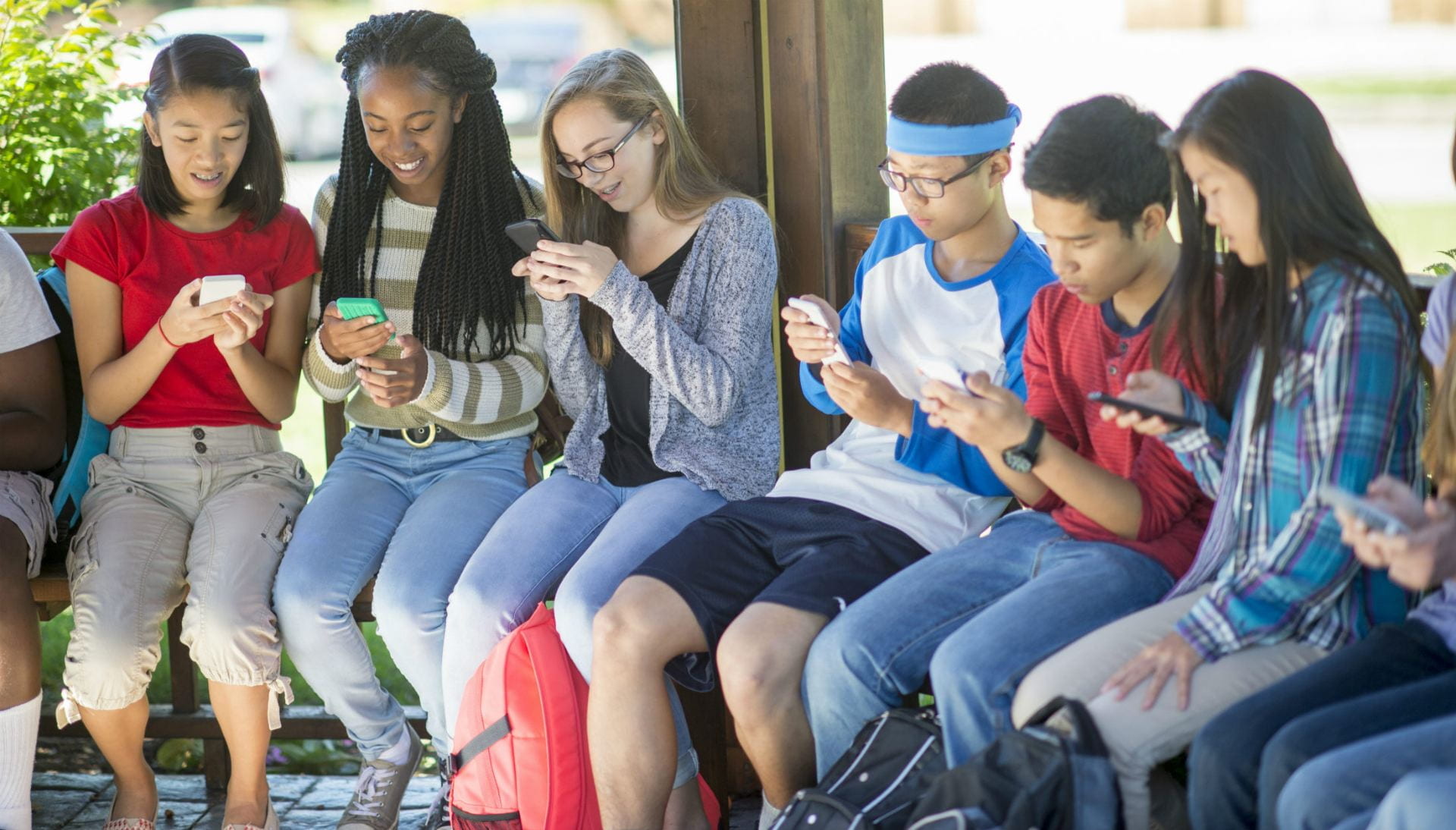There’s no denying that social media has become the new norm in a teen’s life. In 2018, the Pew Research Center surveyed 750 13-17 year olds and found that 97% use a social media platform such as YouTube, Snapchat, Instagram, or Facebook. The study also revealed that 45% are online almost constantly. Here are some important highlights of risks and benefits:
Risks:
There are many concerns about the prevalence of social media affecting a teen’s development. Teenager’s brains are not fully developed until well into their 20’s. Teens who spend a lot of time on social media may have a higher risk for depression or anxiety. Oftentimes those teens who report the most time on social media also report strong feelings of sadness, boredom, and school delinquency.
Cyberbullying is more prevalent than ever before. The ease and ability to send threatening, harassing, or intimidating messages is problematic and harmful. The results of cyberbullying can be profound, including depression, anxiety, and even suicide.
Text/picture messaging via social media can also be of concern because relying solely on the use of emoticons or pictures to have a conversation or tell a story leaves much room for interpretation and misinformation. Furthermore, any pictures or texts are easily shared with those other than the intended audience. This may have negative consequences.
Benefits:
Social media can actually build social networks and offer teens the ability to connect with others based on shared interests or experiences. During times when actual face to face interaction isn’t possible, teens can keep in touch on social media. Teens who might be marginalized due to illness, sexual orientation, or other characteristics can find support on social media. Having a social connection with others in this way may also reduce feelings of depression. Social media can be used as entertainment and expose teens to different experiences not previously accessible. This may encourage creativity, learning, and cultivation of new interests. Teens have increased access to health information on social media which has also been shown to be beneficial.
The good news is that with reasonable strategies, teens can learn to use social media responsibly. Parents can help their teens’ use of social media by setting time limits and monitoring their accounts. Parents can highlight types of behaviors that are not acceptable, helping teens to set guidelines. Encouraging face to face interaction is important as well. Finally, modeling good use of social media as an adult and parent is critical. Reminding teens that not everything they see is true can help make social media a positive in their lives.
All Blogs are written by Professionals in the fields of Nutrition, Human Development and Diabetes.
